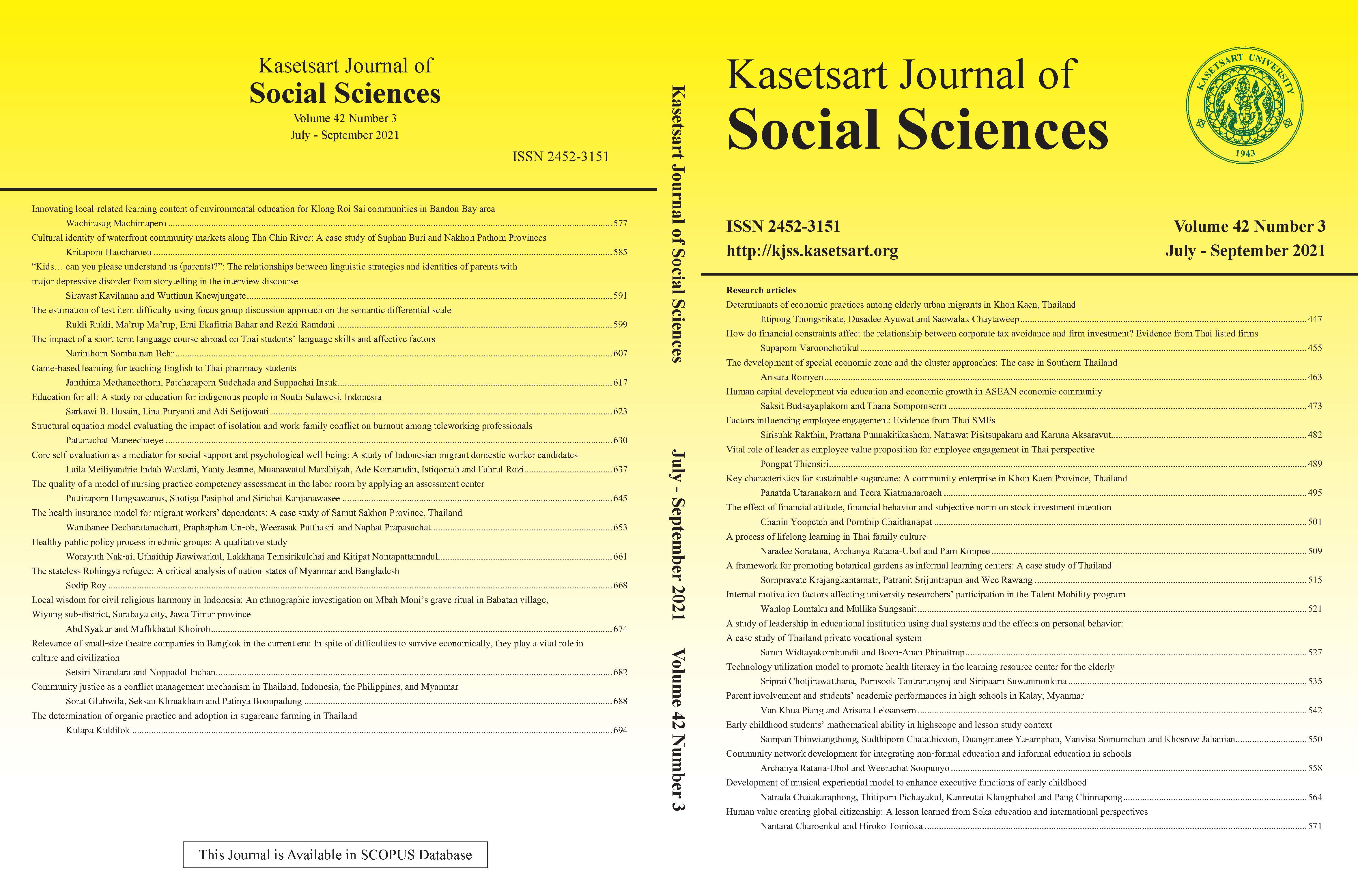Healthy public policy process in ethnic groups: A qualitative study
Keywords:
community developments, ethnic groups, Lisu, Pgazk’nyau, public policy, qualitative studyAbstract
This was a qualitative research whose objectives were to study public policy processes among ethnic groups in dimension with the public policy development process; investigating the conditions that affect the success and threaten the drive of public policy processes. Data were collected from case studies conducted among the ethnic community leaders who drive public policy issues at the local level through protocol in-depth interviews. The sample of the study was composed of 39 participants; leaders, network members, and stakeholders. Data were analyzed by content analysis techniques. The result of this study showed that the public policy of the ethnic groups consisted of four steps; policy formulation, policy process, policy implementation and policy evaluation, while policy process steps consisted of seven steps; grouping, problem identification and guideline developing, network building, public communications, a policy proposal through state apparatus, policy implementation, termination of policy development. The study found that leader characteristics, networks, policy-driven techniques, state policies, political stability, community cultures, capitalism, and globalization are factors that contributed to the success of a healthy public policy. Moreover, the changes which arose from the policy process could be classified into two groups; individual changes and social structures changes. The public policy development of the ethnic groups should raise awareness concerning civil rights as well as strengthen the capacity building among the leader groups. The results suggested that the governmental and private sectors should work collaboratively to develop public policy of the ethnic groups.
Downloads
Published
How to Cite
Issue
Section
License

This work is licensed under a Creative Commons Attribution-NonCommercial-NoDerivatives 4.0 International License.
This is an open access article under the CC BY-NC-ND license http://creativecommons.org/licenses/by-nc-nd/4.0/










